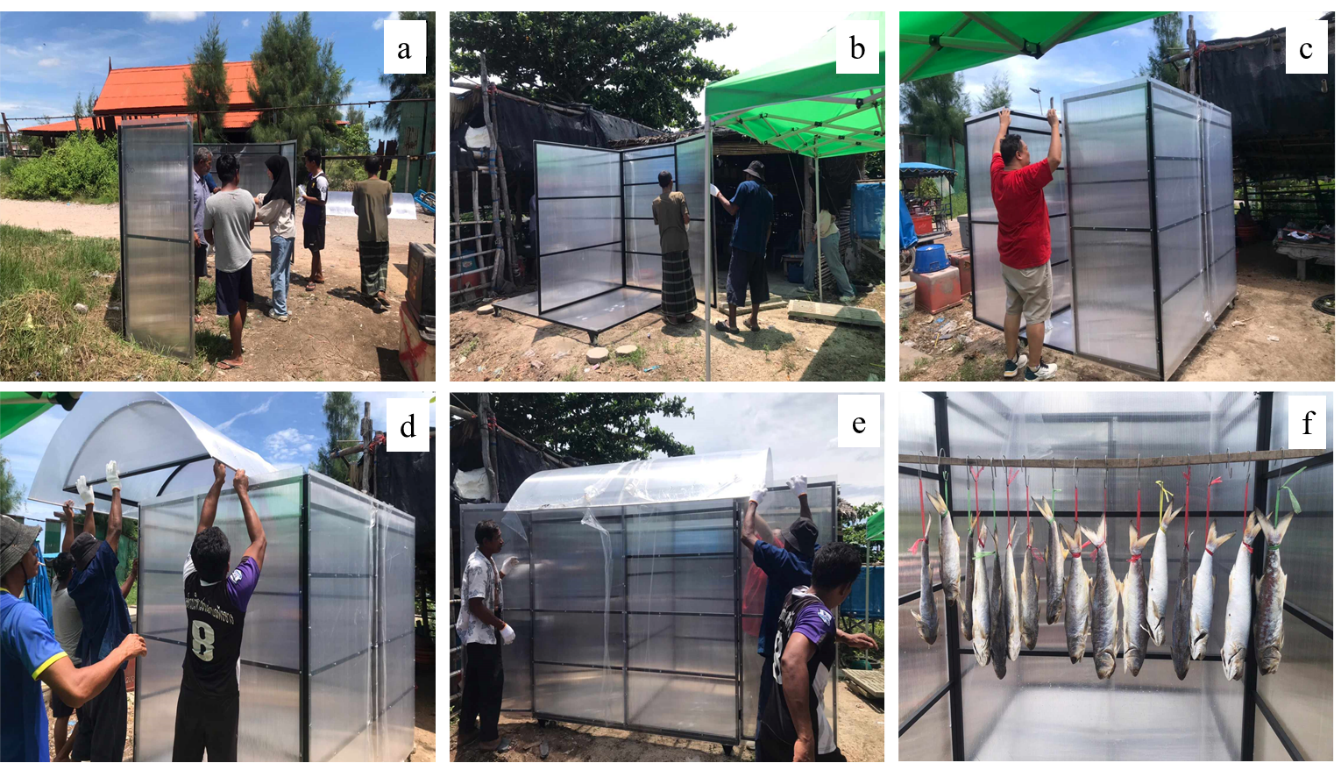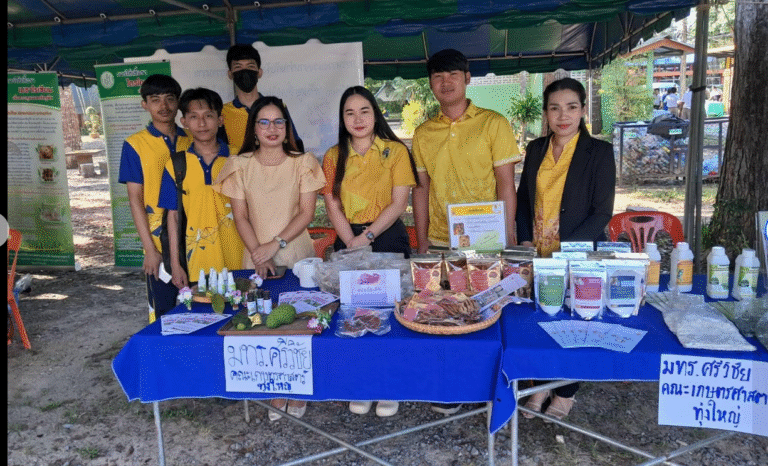Reporters:
Assoc. Prof. Dr. Chatree Homkhiew
Assist. Prof. Dr. Thanwit Naemsai
Assist. Prof. Dr. Thanakorn Damsud
Assist. Prof. Dr. Kosin Teeparuksapun
Evidence Date: January-December 2024
Related Indicators: 9.3
Details:
Rajamangala University of Technology Srivijaya (RUTS) has launched a five-year strategy (2023–2027) under the vision of becoming an “Opportunity University” focused on driving regional sustainability through research, technology, and innovation.
A key initiative, “Development of Community Innovation to Enhance the Grassroots Economy in the Songkhla Lake Basin,” funded by the National Science Research and Innovation Fund (NSRF) and PMU-A, applies the “Appropriate Technology” concept — creating technologies suited to local contexts to solve community problems.
The project developed and implemented technologies such as a water quality monitoring system for sea bass farming and a solar-powered incubator for salted fish processing across four occupational groups in Songkhla Province. These technologies improved production efficiency, ensured hygiene, and doubled output, achieving TRL 7, ATL-B, and SRL 5–7, indicating readiness for community use and acceptance.
The initiative also cultivated 41 community innovators who now lead local Learning and Innovation Platforms (LIP) to share knowledge, train others, and sustain technology adoption.
Through these efforts, RUTS has strengthened local economies, created new jobs, and established a sustainable model for university–community collaboration, bridging academic research with real-world impact at the grassroots level.

Figure 1. Solar-powered dryer: (a) components of the solar-powered dryer; (b) installation of the base and partition panels; (c) assembly of the side covers; (d) installation of the roof; (e) inspection for gaps and finishing details; and (f) fish-drying experiment using the solar-powered dryer.
Related Links: https://www.facebook.com/profile.php?id=100077199970875




